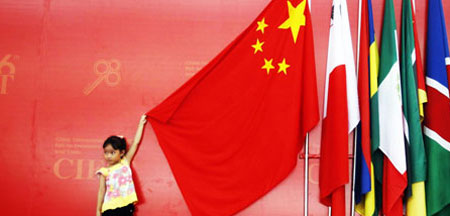
Planting the seeds of growth
Updated: 2012-12-18 15:22The younger generations of Rwandans who want to make mushroom cultivation a permanent affair find the Chinese expertise a steady pillar of support.
"C-RATDC means permanent technical assistance from experts and a crucial factor in our business expansion plans," says Uwammariya Marie Chantal, chairman of Agrocare Cooperative, an association set up by graduates from the National University of Rwanda.
"Their constant direction, frequent updating of knowledge and supply of good quality mushroom tubes are important factors in the success of our business," he says.
Apart from juncao mushroom production, the center also concentrates on rice production techniques, soil and water conservancy and sericulture technology. All these plans are complementary to each other and contribute to water conservancy, while residue from sericulture and rice production can also be used for mushroom cultivation.
"We have five functions at this technology demonstration center — adaptability research and experiments, breeding high quality seeds, training, technology and skills demonstration and promotion, as well as small-scale production and processing of mushroom, crops and silk products," says Lin Zhansen, another professor at the center.
The center has so far organized 16 short-term training courses in association with local agricultural departments, he says.
"I have been researching and promoting paddy cultivation in China and based on my findings, I am confident of increasing the quality and productivity of rice yields in Rwanda," says Huang Shuiming, a researcher from the C-RATDC.
Huang has designed and jointly conducted courses on paddy rice growing along with field trials.
"Theories and skills delivered during this course are extremely practical and designed in such a way that it suits the social and natural conditions of Rwanda," he says.
Nshimiyimana Etieniye, a Rwandese student, says they have acquired extensive knowledge on several novel rice cultivation techniques.
"It is new for the Rwandan rice industry. We are committed to working closely with the Chinese experts to popularize the rice cultivation techniques all over Rwanda," Etieniye says.
At the same time, he says that focusing on rice cultivation alone is not enough and more exchanges on other agricultural technologies like water and soil conservation techniques and on cultivation of crops like mushroom using agricultural residue like rice straw are needed.
Bunani Jean, a technician in the rice program of the Rwanda Agriculture Board, says agriculture has played a vital role in achieving the self-reliance goal for several farmers.
"We pay the transportation and accommodation fees for selected students across our country, to show our dedication to work with the Chinese experts at the center to advance our knowledge in agriculture," he says.
Though the center is functioning on a three-year contract, the Chinese experts are confident there will be more cooperation between the two sides in the long term.
"Three years is too short a time for agricultural projects as the experiments alone take more than half of this time," Lin says.
"We hope that more time would be granted when the contract is renewed so that we can reach out to more local people."
Lin says that though he feels the obligation and responsibility on his shoulders, his actions are guided by the nature of the center and its capacity.
"We are not a company, but a technology demonstration center. This means that the focus of our job is not to make profits, but to help people, and hence our financial capabilities are also limited," he says.
"For instance, we can send the first few batches of mushroom tubes free of charge to university graduates and women's organizations to help them establish their own business. But due to lack of people and finance, we can't keep on doing so."
He also feels that agriculture progress should go hand in hand with technology advances. If this happens, agricultural technology alone would be more than enough to ensure prosperity, he says.
"Our sericulture technologies are already facing unexpected challenges and moving away from their initial plans," says Lin. "Most of the farmers who have raised mulberry and cocoons are struggling for survival as there are no silk processing facilities in Rwanda, and hence no buyers."
lilianxing@chinadaily.com.cn
- BYD exports three electric cars to Thailand
- Grid gets first jolt of residential solar power
- US now largest buyer of China's exports
- China's outbound M&As on the rise
- Tobacco control may entail price, tax rises
- Quanzhou becomes pilot financial reform zone
- New automobiles shine at Geneva Motor Show
- World's longest high-speed rail 'on track'
- Jiugui Liquor involved in plasticizer scandal again
- Accident reignites school bus safety concerns
- China to revise labor law
- Trademark registration under scrutiny
- Dinner ban takes toll on liquor firms
- CIC tables bid for London's Chiswick Park
- Property buyers eye overseas market
- Call for law to protect personal information
- China to cut train ticket prices
- Christmas business
- Solar industry to get jolt from new policies
- KFC chicken under spotlight














